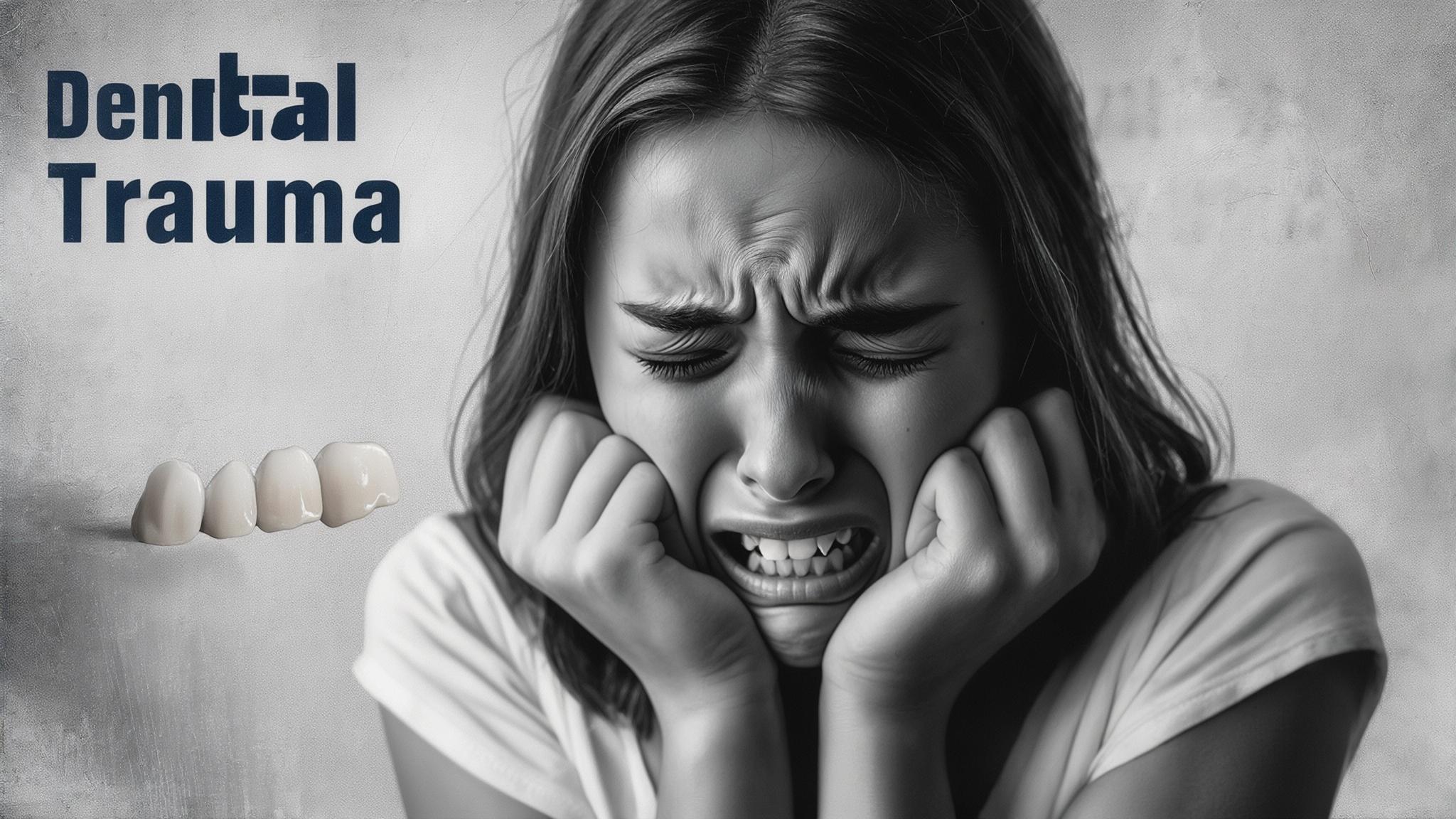Introduction
Dental trauma refers to any injury to the teeth, gums, or surrounding oral structures. It's a common occurrence that can happen to anyone, from a child falling off a bike to an adult involved in a car accident. Addressing dental trauma promptly is crucial because even minor injuries can lead to significant complications if left untreated. This article explores the different types of dental trauma, the immediate steps to take following an injury, and the consequences of neglecting such injuries. We'll also discuss the role of dental professionals and preventive measures to protect your dental health.
Types of Dental Trauma
Dental injuries come in various forms, each requiring specific attention:
- Chipped Teeth: Often caused by biting down on something hard or a blow to the face, chipped teeth can be minor or extensive, affecting the tooth's enamel.
- Fractured Teeth: More severe than a chip, a fracture can involve damage to the tooth's structure and may expose the nerve, leading to pain and sensitivity.
- Knocked-out Teeth (Avulsed Teeth): This is when a tooth is completely dislodged from its socket, often due to a sudden impact.
- Luxation Injuries (Tooth Displacement): This occurs when a tooth is moved from its original position, which can affect the alignment and health of surrounding teeth.
Causes of Dental Trauma
Several common scenarios can lead to dental trauma:
- Sports Injuries: Contact sports like football or hockey can result in dental injuries if proper protection is not used.
- Accidents: Falls or car accidents can cause significant impact to the mouth.
- Physical Altercations: Fights or physical confrontations can lead to facial injuries, including dental trauma.
- Other Incidents: Chewing on hard objects or accidental bites can also cause damage.
Immediate Steps to Take After Dental Trauma
When dental trauma occurs, quick and calm action is essential:
- Assess the Situation: Check for pain, bleeding, and the extent of the injury. This helps determine the urgency of the situation.
-
First Aid Measures:
- Rinse the mouth gently with warm water to clean the area.
- Control bleeding by applying gentle pressure with gauze.
- If a tooth is knocked out, try to preserve it in milk or saline to increase the chances of successful re-implantation.
- Avoid using the injured tooth to prevent further damage.
Seeking professional help as soon as possible is vital to address any underlying issues and begin appropriate treatment.
Consequences of Ignoring Dental Trauma
Ignoring dental trauma can lead to both short-term and long-term complications:
-
Short-term Effects:
- Increased pain and discomfort can interfere with daily activities.
- There's a heightened risk of infection, which can spread and cause more severe health issues.
-
Long-term Effects:
- Permanent tooth loss may occur if the injury is not addressed promptly.
- Misalignment of teeth can result from untreated luxation injuries, affecting your bite and smile.
- Jaw issues, such as TMJ disorders, may develop due to misalignment or ongoing pain.
- Treatment becomes more complex and costly over time, emphasizing the importance of early intervention.
The Role of Dental Professionals
Dental professionals play a critical role in treating dental trauma:
- Timely Evaluation: A prompt dental evaluation can prevent complications and guide effective treatment.
-
Common Treatments:
- Dental Bonding: Used for repairing chipped teeth, restoring their appearance and function.
- Root Canal Therapy: Necessary for fractured teeth if the pulp is exposed or damaged.
- Re-implantation Techniques: For knocked-out teeth, dental professionals can attempt to re-implant the tooth.
- Orthodontic Intervention: Used to correct displacement and ensure proper alignment.
- Follow-up Care: Regular monitoring ensures that healing progresses as expected and prevents future issues.
Preventative Measures
Preventing dental trauma is always better than treating it:
- Mouthguards: Wearing a mouthguard during sports can significantly reduce the risk of injury.
- Safe Practices: Being cautious to avoid falls and accidents can protect your teeth.
- Regular Check-ups: Routine dental visits help monitor oral health and catch potential problems early.
Conclusion
Dental trauma should never be ignored. Acting quickly and seeking professional help can prevent pain, complications, and costly treatments. Remember, your oral health is an integral part of your overall well-being, and taking prompt action in dental emergencies ensures a healthier future.
References
- American Dental Association
- Mayo Clinic Dental Trauma Guide
- National Institutes of Health - Dental Trauma
For further reading and resources, visit these reputable dental health organizations.

